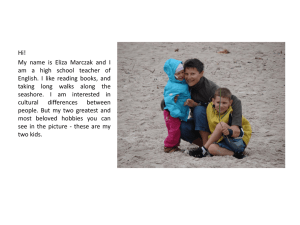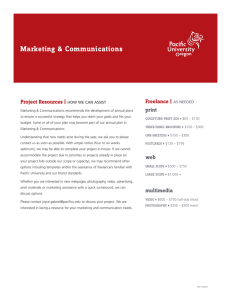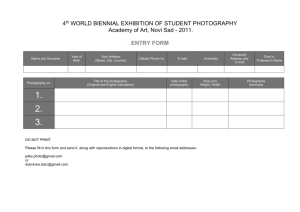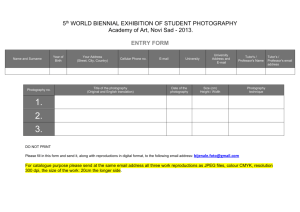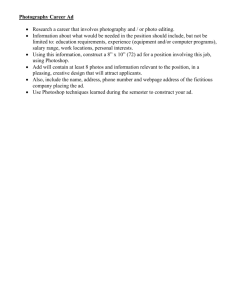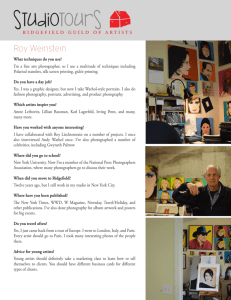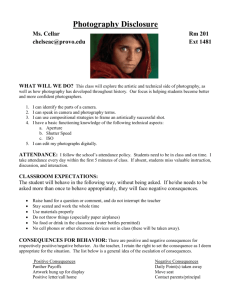Agency and Automatism: Photography as Art since the Sixties
advertisement
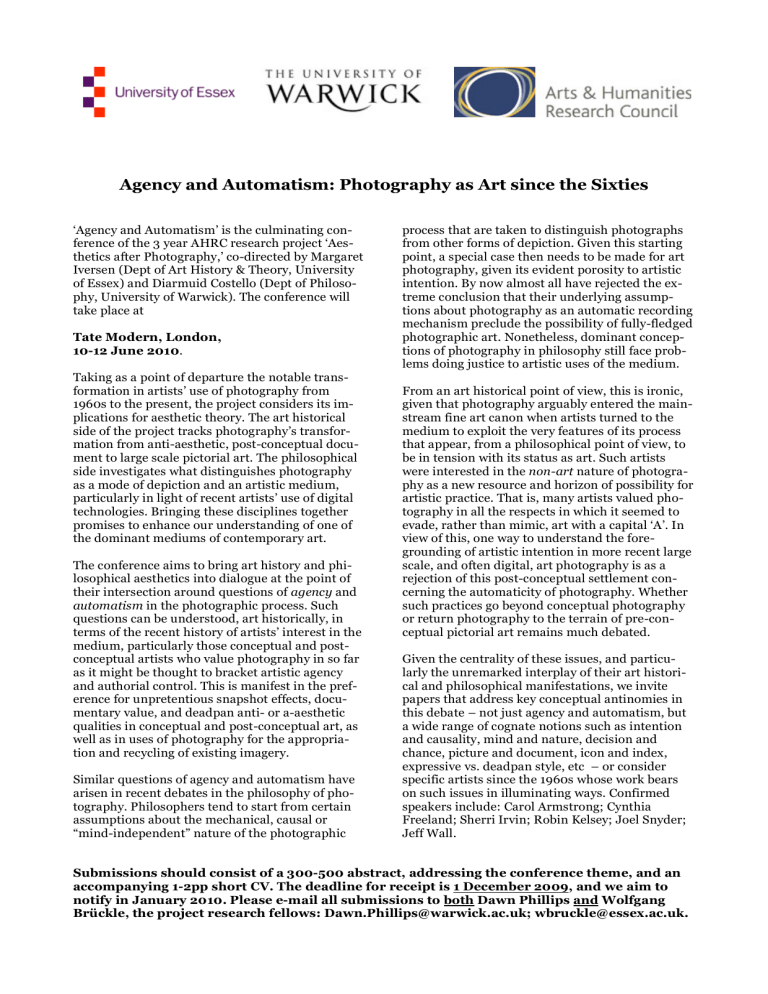
Agency and Automatism: Photography as Art since the Sixties ‘Agency and Automatism’ is the culminating conference of the 3 year AHRC research project ‘Aesthetics after Photography,’ co-directed by Margaret Iversen (Dept of Art History & Theory, University of Essex) and Diarmuid Costello (Dept of Philosophy, University of Warwick). The conference will take place at Tate Modern, London, 10-12 June 2010. Taking as a point of departure the notable transformation in artists’ use of photography from 1960s to the present, the project considers its implications for aesthetic theory. The art historical side of the project tracks photography’s transformation from anti-aesthetic, post-conceptual document to large scale pictorial art. The philosophical side investigates what distinguishes photography as a mode of depiction and an artistic medium, particularly in light of recent artists’ use of digital technologies. Bringing these disciplines together promises to enhance our understanding of one of the dominant mediums of contemporary art. The conference aims to bring art history and philosophical aesthetics into dialogue at the point of their intersection around questions of agency and automatism in the photographic process. Such questions can be understood, art historically, in terms of the recent history of artists’ interest in the medium, particularly those conceptual and postconceptual artists who value photography in so far as it might be thought to bracket artistic agency and authorial control. This is manifest in the preference for unpretentious snapshot effects, documentary value, and deadpan anti- or a-aesthetic qualities in conceptual and post-conceptual art, as well as in uses of photography for the appropriation and recycling of existing imagery. Similar questions of agency and automatism have arisen in recent debates in the philosophy of photography. Philosophers tend to start from certain assumptions about the mechanical, causal or “mind-independent” nature of the photographic process that are taken to distinguish photographs from other forms of depiction. Given this starting point, a special case then needs to be made for art photography, given its evident porosity to artistic intention. By now almost all have rejected the extreme conclusion that their underlying assumptions about photography as an automatic recording mechanism preclude the possibility of fully-fledged photographic art. Nonetheless, dominant conceptions of photography in philosophy still face problems doing justice to artistic uses of the medium. From an art historical point of view, this is ironic, given that photography arguably entered the mainstream fine art canon when artists turned to the medium to exploit the very features of its process that appear, from a philosophical point of view, to be in tension with its status as art. Such artists were interested in the non-art nature of photography as a new resource and horizon of possibility for artistic practice. That is, many artists valued photography in all the respects in which it seemed to evade, rather than mimic, art with a capital ‘A’. In view of this, one way to understand the foregrounding of artistic intention in more recent large scale, and often digital, art photography is as a rejection of this post-conceptual settlement concerning the automaticity of photography. Whether such practices go beyond conceptual photography or return photography to the terrain of pre-conceptual pictorial art remains much debated. Given the centrality of these issues, and particularly the unremarked interplay of their art historical and philosophical manifestations, we invite papers that address key conceptual antinomies in this debate – not just agency and automatism, but a wide range of cognate notions such as intention and causality, mind and nature, decision and chance, picture and document, icon and index, expressive vs. deadpan style, etc – or consider specific artists since the 1960s whose work bears on such issues in illuminating ways. Confirmed speakers include: Carol Armstrong; Cynthia Freeland; Sherri Irvin; Robin Kelsey; Joel Snyder; Jeff Wall. Submissions should consist of a 300-500 abstract, addressing the conference theme, and an accompanying 1-2pp short CV. The deadline for receipt is 1 December 2009, and we aim to notify in January 2010. Please e-mail all submissions to both Dawn Phillips and Wolfgang Brückle, the project research fellows: Dawn.Phillips@warwick.ac.uk; wbruckle@essex.ac.uk.
